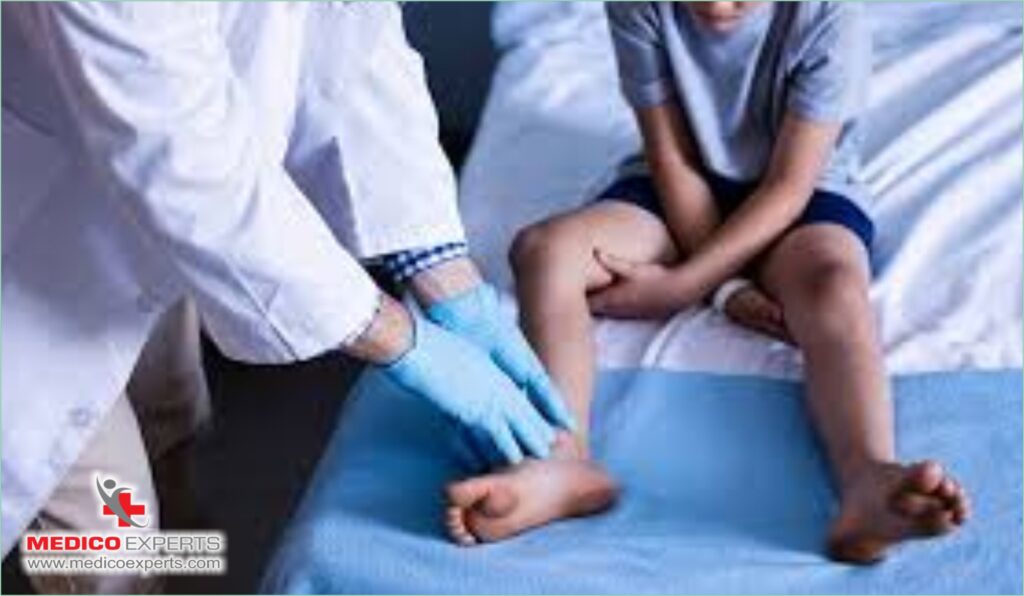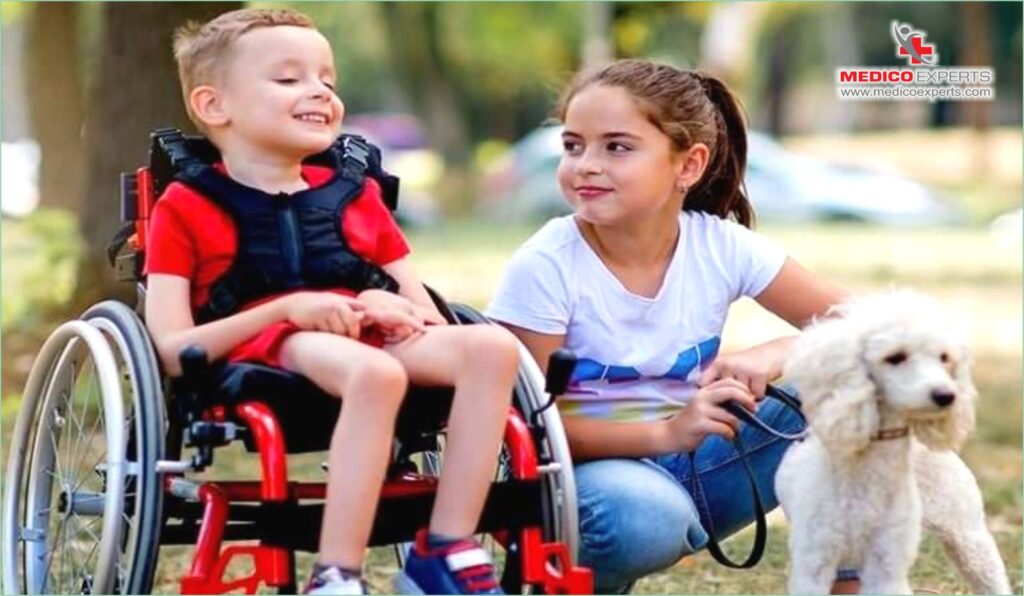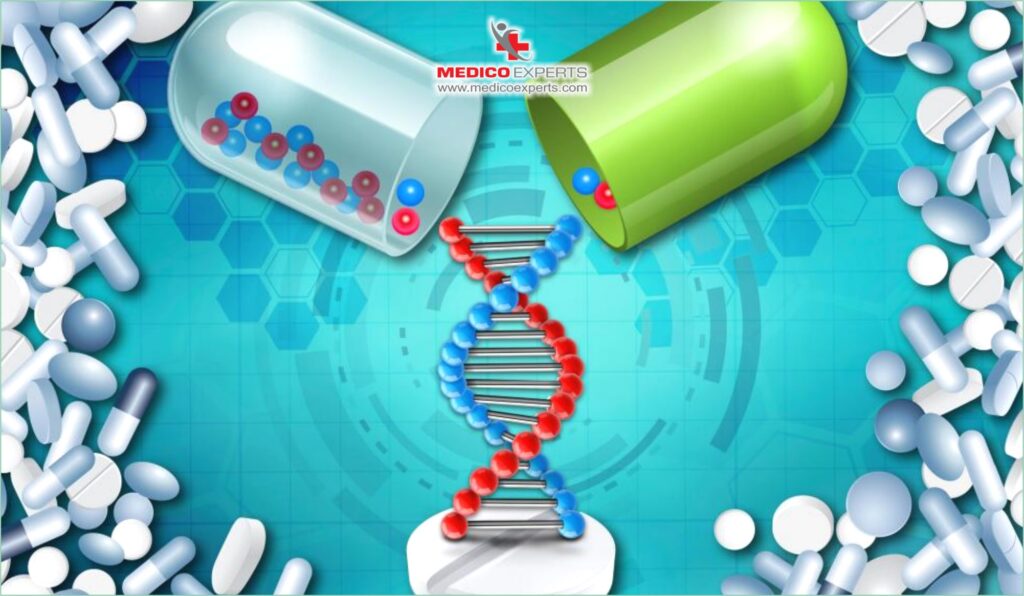You may fear your child losing physical ability due to Duchenne muscular dystrophy.
“How does Duchenne muscular dystrophy affect daily life?” is one of the questions that must be giving you sleepless nights as a parent.
You may be concerned about your child facing challenges like difficulty walking, climbing stairs, and getting up from a seated position.
But you need to know that some treatments and therapies can help your child improve symptoms and also extend their life expectancy.
With that in mind, let’s learn how DMD impacts daily life and practical strategies for coping.
Key Takeaways
- DMD is a genetic disorder that leads to muscle weakening and wasting.
- DMD affects the movement, breathing, heart health, and cognitive functions of the patient. These symptoms lead to difficulties in daily activities like walking and climbing stairs.
- Children with DMD need your care in everything. They need help in performing tasks like bathing and dressing. This may create emotional and financial stress for the patient and their family.
- There are many treatments and therapies that can help DMD patients have an independent and comfortable life. Combination therapy can help them significantly lower the symptoms.
What is Duchenne Muscular Dystrophy?

DMD is a genetic disease that leads to progressive muscle weakness and degeneration. It can be diagnosed in early childhood and some common signs of this disease are difficulty walking, running, and climbing stairs.
Other symptoms are waddling gait, frequent falls, weakness in the shoulder and pelvis, and clumsiness.
To know more, check our extensive blog on Duchenne Muscular Dystrophy.
How does Duchenne Muscular Dystrophy affect daily life?

DMD impacts the movement, breathing, heart health, bone health, cognitive skills, and behaviour of the patient. Children with DMD may need a ventilator to breathe properly and they may also have issues while traveling by airplane.
Let’s take a closer look at how Duchenne Muscular Dystrophy impacts a person’s day-to-day life.
Impacts On Daily Routines And Adaptations
The daily routines of a child with DMD will be highly impacted by the physical challenges that they face. The child may have walking, climbing stairs, balance, speech, and learning disabilities.
Depending on the child’s challenges, they may need adaptive devices like a wheelchair, orthotics, physiotherapy, and respiratory care (chest physiotherapy and assistance devices).
Moreover, the child will also need school support, especially in physical activity lessons. Your home will also need to adapt if the child slowly loses the ability to move.
Impacts On Personal Care
Children with DMD need daily assistance with basic activities like bathing, grooming, and dressing up independently. With time, muscle weakness increases, and going to the bathroom and moving without assistance becomes next to impossible for most people.
The family and caregiver face many challenges. It may take a toll on their emotional well-being as they may experience guilt, anxiety, fear, grief, and uncertainty about the future.
The financial burden is another challenge that the family faces. Caregivers may have the burden of high healthcare and equipment costs. They may also have to face job loss.
Impacts On Educational And Social Life
Your child may have cognitive issues including language problems, social judgment challenges, and ADHD (attention deficit hyperactivity disorder) due to DMD. These challenges will make it difficult for the child to process information, express themselves, and respond to questions.
Additionally, the child’s physical limitations can hinder them from keeping up with their peers during play or games. Not being able to mingle with their peers may lead to depression and social isolation.
Additionally, a study showed that boys with DMD have comparatively lower IQ and academic test scores than other children of their age.
Impacts On Emotional And Psychological Effects
Apart from learning challenges, DMD increases the risk of neuropsychiatric disorders like ADHD, anxiety, and autism spectrum disorder. Children can suffer from social isolation and depression as they cannot participate in activities and play due to physical limitations.
As said above, family members are also in stress which contributes to psychological problems.
How can DMD Patients live a Self-Reliant Complete Life?
It is a challenge to live a self-reliant and complete life with DMD but there are treatments, therapies, and assistive devices that can help your child overcome the challenges and live independently.
Stem Cell Therapy
In this therapy, stem cells are used to treat Duchenne Muscular Dystrophy. Stem cells have some special properties. These cells can turn into different cell types and they can regenerate or repair damaged muscle tissues affected by DMD.
The doctors will collect stem cells either from the patient or a donor. Then the stem cells are treated in a lab to enhance their muscle-regeneration capabilities.
These cells are reintroduced into the patient’s body after that. They target the muscles most affected by Duchenne Muscular Dystrophy.
This cell therapy is one of the promising treatments for DMD. Here are some of the benefits of stem cell therapy:
- It lowers the symptoms of DMD
- Stem cells are in your body and they are taken from you and also from a donor.
- It can be used in every age and stage of muscular dystrophy
- It boosts muscle strength.
Ayurveda
Ayurveda uses natural herbs and therapy to treat DMD. It is completely chemical-free and without any side effects. The goal of Ayurvedic treatment is to establish a balance among mind, body, and soul.
Ayurveda helps you manage DMD through Panchakarma therapies and herbal remedies that balance the dosha’s vata, pitta, and kapha.
The medicines in Ayurveda are created based on the idea that the world is made up of jala (water), Aakash (space), Teja (fire), Prithvi (earth), and Vayu (air). The combination of each element leads to the three doshas mentioned above. These doshas are responsible for your physical, psychological, mental, and emotional health.
Ayurvedic therapies boost strength, stamina, and immunity. Herbs like garlic, ashwagandha, and turmeric provide anti-inflammatory and antioxidant benefits that help manage DMD.
Homeopathy
Homeopathy focuses on stimulating your body’s natural healing response. It uses remedies based on individual-specific symptoms.
Homeopathy treatment aims to boost immunity, reduce muscle weakness, and lower pain without causing side effects for DMD patients.
Homeopathic remedies address muscle wasting, improve motor function, and provide relief from fatigue. In short, it helps you manage the symptoms of DMD.
Other Medical Management
Early diagnosis and proactive medical care are two important factors to manage DMD. Your child will need regular monitoring by the doctor and physical therapist. Also, you need to use the medicines recommended by a doctor to slow down muscle degradation.
You need to focus on cardiac and respiratory care because DMD affects these systems severely if overlooked. You can help your child manage DMD better by controlling these challenges and helping them maintain better mobility and overall health.
Healthy Diet
There is no special diet for DMD. However, healthy food choices will help manage weight-related issues and avoid constipation. Protein, fiber, healthy fats, calcium, vitamins, and minerals will help your child stay healthy and manage their condition better.
If the child’s mobility is limited, they need to stay hydrated all day long. Foods that they need to avoid are refined carbohydrates like sugar, low-fiber grains, and high salt intakes.
It will be best for your child if you consult a dietician and work with them to ensure that they get the right amount of nutrients and calories every day.
Exercises
Your child needs to exercise to maintain their muscle and cardiovascular health. But you need to ensure that they do not get hurt in the process. You can take the help of a physical therapist to assist the child while doing exercises.
Physical therapists will help them do it safely and without exhausting their body. Some of the best exercises are water exercises like swimming, bike exercises, breathing exercises, and gentle stretching.
Home Modifications
Modification in your home can make your child’s life much easier. Here are some of the things you can do:
- Choose lever-style door handles instead of door knobs.
- Declutter your home because if there are things scattered around, they will come in the way of your child. So, clear all ways and hallways for them to make it easier for them to move in and around their home.
- Choose smooth flooring material. Hardwood and laminations are some great options. This helps walkers and wheelchairs move easily without any obstructions.
- Install motion sensor lights and bright lights so that the child doesn’t have any problem with visibility at night.
- Consider using smart home technology, voice-activated devices, and doorbell cameras.
- Avoid using rugs and carpets as they might obstruct the child from moving freely.
Combination Therapy

Combination therapy is an integration of the strengths of multiple medical sciences – such as allopathy, advanced regenerative medical science, homeopathy, and Ayurveda, MedicoExoerts has seen substantial improvement in results in predictable time frames.
Combination therapy for DMD has the following benefits:
- Strengthening of muscles
- Slowing down muscle wasting
- Pain relief
- Improve movements
- Lowering breathing difficulties
- Increasing balance
Takeaway

There is no doubt that DMD brings along social, emotional, and physical challenges for your child and you. From mobility issues to emotional stress, it takes a toll on your life.
But with the right treatment, therapies, and lifestyle adjustments, your child will live an independent and fulfilling life. Combination therapy can reduce the symptoms drastically and increase self-reliance in your child.
Most importantly, you need to remember that proper care and a positive outlook are the keys to a brighter and healthier future.
From undergoing combination therapy to finding the best physical therapist, MedicoExperts understands the issues that family members of DMD patients face. That’s why we strive to help you in every step you take to give your loved ones a better life.
Call us today to get connected with the best specialists for Duchenne Muscular Dystrophy.
Frequently Asked Questions (FAQs):
Q1. Does Duchenne Muscular Dystrophy affect females?
A. DMD mostly affects males. Males have XY chromosomes and DMD damages the X chromosome. So there are no X chromosomes to replace the damaged one. Females have XX chromosomes. So when one X chromosome is damaged the other one replaces it.
That’s why only in rare instances, it affects females.
Q2. Does Duchenne Muscular Dystrophy affect speech?
A. DMD affects the speech development of a child. Some speech problems that children with DMD experience are late onset of speech, non-fluent speech, difficulty repeating words and sentences, difficulty finding words, and abnormal articulation.
Q3. How does Duchenne Muscular Dystrophy affect development?
A. Children with DMD may display progressive intellectual impairment and learning disability. It also affects the motor skills, bone health, and cardiovascular health of the patient.
Q4. How does Duchenne Muscular Dystrophy affect the heart?
A. DMD can cause cardiomyopathy which is a condition that weakens the heart muscle and makes it difficult for the heart to pump blood.
Q5. What age does Duchenne Muscular Dystrophy affect?
A. It begins as early as infancy but the symptoms are visible between two and five years of age.
References
https://www.ncbi.nlm.nih.gov/pmc/articles/PMC8862644/
https://www.ncbi.nlm.nih.gov/pmc/articles/PMC5490573/
https://pmc.ncbi.nlm.nih.gov/articles/PMC5198827/
https://www.ncbi.nlm.nih.gov/pmc/articles/PMC4480531/
Understanding The Spectrum Of Autism In Children
https://www.ncbi.nlm.nih.gov/pmc/articles/PMC10041431/#:~:text=Despite%20the%20improved%20use%20of,and%20neuropsychiatric%20disorders%20%5B10%5D.
https://www.parentprojectmd.org/wp-content/uploads/2018/04/EdMatters_LearningAndBehavior.pdf
https://pubmed.ncbi.nlm.nih.gov/22560791/
https://pubmed.ncbi.nlm.nih.gov/17164619/
https://www.ncbi.nlm.nih.gov/pmc/articles/PMC3358238/
https://www.ncbi.nlm.nih.gov/pmc/articles/PMC6790222/
https://www.ncbi.nlm.nih.gov/pmc/articles/PMC4125555/
Relevant Articles For You
Muscular dystrophies are a diverse set of genetic conditions characterized by muscle weakness and a gradual loss of…..Read More
Stem cells are obtained in human body that have the unique ability to duplicate themselves and make new…..Read More
Recommendations To Understand Different Treatments
DMD is a genetic disorder in which your muscles gradually weaken because of changes in a protein called…..Read More
Stem cells have some unique properties. These cells can turn into all other cells of your body with different functions such as…..Read More
Medically Reviewed By MedicoExperts Editorial & Clinical Review Board On 14 November 2024



